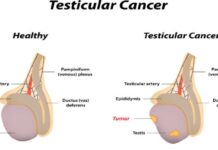 WASHINGTON: Scientists have discovered why some of the most aggressive and fatal breast cancer cells are resistant to chemotherapy.
WASHINGTON: Scientists have discovered why some of the most aggressive and fatal breast cancer cells are resistant to chemotherapy.
Adriana S Beltran, a research assistant professor in the department of pharmacology, University of North Carolina, found that the protein Engrailed 1 is overexpressed in basal-like carcinomas.
She also designed a chain of amino acids to shut down the protein and kill basal-like tumors in the lab.
“Patients with basal-like breast cancer tend to initially respond well to chemotherapy, but it’s common for patients to relapse even more aggressively,” said Beltran, the first author of the paper published in the journal Oncogene.
“We believe that relapse is caused by a small number of cancer cells that have stem cell properties that allow them to survive chemotherapy. In these cells we’ve identified the overexpression of Engrailed 1,” she added.
Beltran and her colleagues discovered that Engrailed 1 is not involved in the rapid proliferation of cells that cause tumor growth. It is also not present in luminal tumors – the most common form of breast cancer. The culprit protein only appears in basal-like breast cancer.
In fact, Engrailed 1 is normally confined to the brain, where it protects neurons from cell death and helps maintain their normal activity.
The absence of the protein in the brain has been linked to the onset of Parkinson’s disease. But there is no known function of Engrailed 1 within breast tissue.
“We think that Engrailed 1 confers protective features to breast cancer cells, similar to the features observed in long-lived neurons,” Beltran said.
“This may explain why these cells survive and become resistant to chemotherapy in our experiments,” she said.
The researchers found Engrailed 1 through a series of experiments designed to find genes highly expressed in basal-like cells but not in luminal breast cancers.
They discovered that Engrailed 1 was most highly expressed in cell lines isolated from inflammatory breast cancer.
Beltran and colleagues also determined that Engrailed 1 was associated with the gene EPRS, which expresses an enzyme that controls messenger RNA and protein synthesis, particularly in proteins involved with inflammation.
After studying how Engrailed 1 binds to DNA and other proteins, the researchers created a synthetic peptide – a chain of amino acids – that can stifle the binding power of Engrailed 1. -PTI






